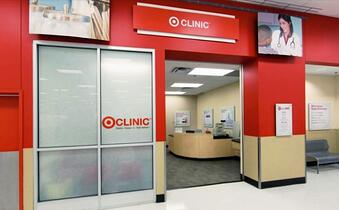From VentureBeat.com

Uber, the poster child of the sharing economy, came out of nowhere and managed to overhaul the traditional taxi business in just a few short years. It now has a valuation of approximately $41 billion.
Now Wall Street is searching for the next industry that can be Uber-fied. There are rooms full of analysts in search of the next “sharing economy” juggernaut. And I’ll bet they’re not looking at health care — an industry that’s proven one of the most difficult to drag into the tech age.
But they could be missing something big. Recent movement from the U.S.’s biggest retailers into the primary care business indicates that health care might finally be in for some big disruption.
Take Wal-Mart, for example. As health insurance has become more accessible through ObamaCare Insurance Exchanges, millions of consumers are accessing the Primary Care system for the first time. Wal-Mart is seeking to capitalize on this by opening a half-dozen Primary Care Clinics located within their larger stores. The company already has over 100 Retail clinics, in partnership with QuadMed. Wal-Mart is branding these new, company-owned clinics as “one-stop shops” for Primary Care. They will be open 12 hours a day during the week and eight hours a day on weekends, as the newly insured seek new, convenient sources of care.
As a business model, Wal-Mart has always focused on disruption, efficiency, and cost management as its core competencies — three things healthcare has never been able to master. But Wal-Mart isn’t the only big retailer moving into this space. Target has introduced a new partnership with Kaiser-Permanente to bring convenient, high quality health solutions to Target customers. And Walgreens is not only quietly transforming the traditional “drug store” with its MinuteClinics, it also announced a partnership with innovative lab service provider Theranos. The partnership will introduce lightning-fast CLIA-certified lab services in Walgreens.
Just this week, Whole Foods CEO John Mackey announced his ambitious plans to join the circus. Enter the Whole Foods health clinic, where employees and customers could walk in and consult practitioners about minor health ailments or chronic conditions like diabetes, high cholesterol, and metabolic syndrome. Whole Foods’ strategy would be to attract the kind of consumers who are deeply health conscious but skeptical of mainstream medicine’s heavy use of pharmaceutical products for lifestyle-related diseases — some of which can be prevented or treated with exercise and dietary changes.
So how does all of this relate to Uber? Consider that Uber has a $41 billion valuation and doesn’t own a single vehicle or employ a single driver. It does this by connecting consumer demand with market supply. It is an ecosystem that is brand agnostic. If the driver shows up, the car is clean, and he doesn’t get lost, I am generally going to give him five stars for performance. I don’t care which car service employs the driver. For the most part, Healthcare is also a brand agnostic purchasing decision unless you are seeking very specialized services.
As retail’s move into health care comes of age, there is likely to be excess capacity, but I believe retailers will win when that happens and traditional health service providers will lose. Why? Because the nation’s largest retailers understand customer loyalty. A recent study at Johns Hopkins found that 23 percent of patients see three or more primary-care physicians in a 24-month period, indicating that, currently, patient loyalty to their health care providers is low. By contrast, a recent report published by market research company Nielsen found that, of nearly 30,000 people worldwide, 74% indicated that they were loyal to the supermarkets, retailers, and grocery stores they frequent. Maybe that’s why Wal-Mart, Target, and Walgreens are charging aggressively into the healthcare space. If the goal is to drive new customer traffic through the front door, health care just becomes another conduit for gaining loyal customers.
There is no doubt that retail is making a big bet on health care. If it succeeds, the payoff will be enormous. But just as Uber is at war with the taxi industry, retailers will soon be at war with the large, publicly-traded health care chains. The nation’s largest health care chains will not sit idly by and watch their marketshare erode. In order to win the loyalty war, the nation’s retailers will have to embrace an Uber-like ecosystem that places a premium on convenience, availability, and access.
For original article, click here.